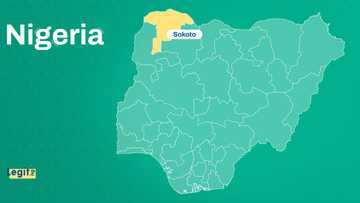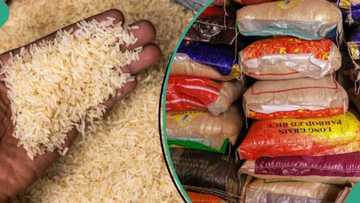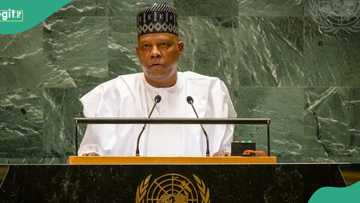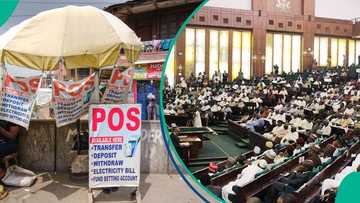As Nigerians Await Tinubu’s Budget Presentation to NASS, CSOs List 6 Key Demands on Education
- Civil society organisations (CSOs) have asked the Bola Tinubu administration to increase the allocation for girls' education in its annual budget
- Malala Fund and its partners explained that empowering girls is not just a moral imperative, but a necessary step towards building a stronger, more equitable society
- According to them, education is a critical factor in empowering girls adding that when girls are educated, they are more likely to contribute to the economy and this, in turn, will boost economic growth and reduce poverty
Legit.ng journalist, Ridwan Adeola Yusuf, has over 5 years of experience covering gender issues and basic education in West Africa.
FCT, Abuja - Malala Fund and its partners on Friday, December 6, urged the Nigerian government to prioritise girls’ education in the 2025 budget by significantly increasing funding to ensure every girl can learn in a safe and supportive environment.
In recent years, Nigeria has allocated 5-8% of its national budget to education, significantly below the 15-20% benchmark recommended by the United Nations Educational, Scientific and Cultural Organization (UNESCO). This underinvestment has left millions of children, especially girls, without access to quality education. Girls in marginalised communities, particularly in the north, face multiple challenges including poverty, insecurity and socio-cultural barriers that hinder their access to education.
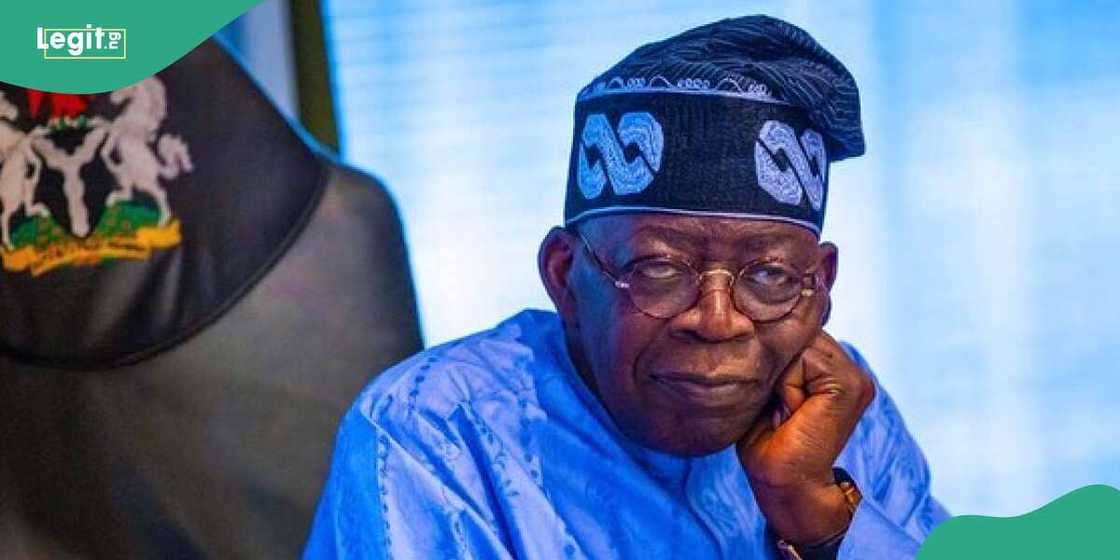
Source: Facebook
In a statement made exclusively available to Legit.ng, Nabila Aguele, chief executive of Malala Fund Nigeria, said:
“Investing in education is the single most transformative step Nigeria can take to unlock the potential of girls and build a more equitable future.
“Girls in underserved regions, who have the most to gain from education, deserve dedicated resources to remove barriers to learning. The 2025 budget is an opportunity to right this wrong and invest in their future.”
Gender-Responsive Education Budgeting in Nigeria
The civil society leaders stated that some states are making significant progress in tackling barriers to education for girls.
Sani Muhammad, executive director of Bridge Connect Africa Initiative and Malala Fund Education Champion explained that Kano state, for example, allocated 31% of their 2025 budget to education.
Muhammad said:
“This allocation affirms the efforts of stakeholders and reflects an increased commitment to girls’ education."
In Oyo state, 21% of their 2025 budget is allocated to education, continuing a trend of increased investment. However, Bukky Shonibare, the executive director of Invictus Africa and Malala Fund Education Champion, noted the absence of dedicated budget lines for girls’ education.
She said:
“While these general increases may benefit all students, gender-specific challenges require targeted approaches to ensure girls receive equitable opportunities."
She added that Invictus Africa’s baseline assessment on gender-responsive education budgeting (GREB) in Oyo state identified this gap and recommended practical budget lines to address gender disparities.
Legit.ng learnt that the 13 civil society leaders who signed the press statement advocate for 12 years of free education for all Nigerian girls.
Nigeria's 2025 national budget: Key demands
Amid the anxiety related to President Bola Tinubu's anticipated presentation of the 2025 budget, Malala Fund and its partners called on the federal and state governments to:
- Increase the education budget: Allocate at least 15% of the national budget to education, aligning with global standards.
- Target funding: Ensure resources reach marginalised students, particularly girls in underserved regions, through dedicated budget lines and targeted interventions.
- Increase fiscal accountability: Establish strong mechanisms to ensure resources are used efficiently and budgets are allocated and spent transparently.
- Align with global standards: Commit to a phased plan to incrementally increase the education budget over the next five years, meeting international standards.
- Target state interventions: Adjust funding models to consider population size and unique challenges to ensure equitable distribution of resources to regions most in need.
- Implement gender-responsive education budgeting (GREB): Nigeria has made progress using gender analysis for education policies but still needs a cohesive national GREB framework. Girls across Nigeria have called on the government to implement this framework to ensure investments address the specific needs of girls, tackle gender disparities in education access and outcomes and promote equitable education for all.
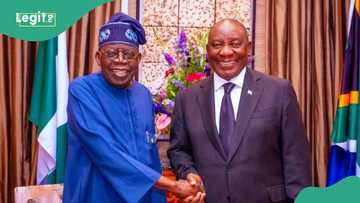
Read also
South Africa eases visa rule for Nigeria, speaks on implementing five-year multiple-entry visas
Importance of investing in girls’ education
Investing in girls’ education delivers great returns. Research indicates that each additional year of schooling increases a girl’s earning potential by up to 10% and reduces the likelihood of child marriage and early pregnancy. At a national level, greater access to education leads to higher gross domestic product (GDP) growth, healthier populations and stronger economies.
Malala Fund and its partners concluded:
"We urge the Nigerian government to seize this opportunity to prioritise education in the 2025 budget. By doing this, Nigeria can bridge gaps in school enrolment and retention, promote equitable education outcomes and unlock long-term economic benefits. Girls’ futures — and the nation’s progress — depend on it."
Meanwhile, strong indications have emerged that President Tinubu may present the 2025 budget to the joint session of the national assembly (NASS) this December.
Recall at a November 2024 emergency meeting, the federal executive council (FEC) approved a proposed 2025 budget of N48 trillion. Though Abubakar Bagudu, the minister of budget and economic planning, announced that the budget is ready and gave indications of some of its contents, what seems imminent is that like the 2024 budget, the 2025 budget is again late.
Coalition advocates 12 years of free education for girls
Earlier, Legit.ng reported that a coalition of non-governmental organisations (NGOs) working to raise awareness on girl–child education in the country, has advocated 12 years of free, safe and quality education for school-age girls.
The coalition, the National Working Group on Basic and Senior Secondary Education, said by doing so, the country would be taking significant steps towards a brighter future for all Nigerians.
Source: Legit.ng


